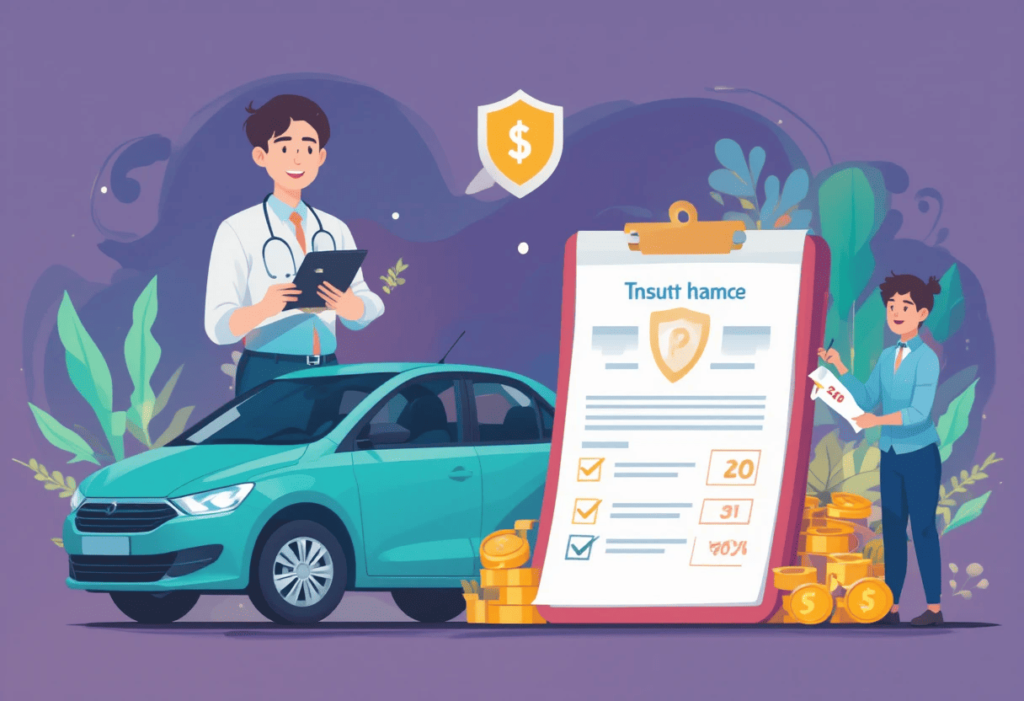
Introduction
Car insurance is essential for every driver, offering financial protection in case of accidents, theft, or damages. One of the first steps in securing a good policy is obtaining car insurance quotes from different providers. But how do you get the best rates? This comprehensive guide will walk you through everything you need to know about car insurance quotes, including how they are calculated, factors that affect them, and tips to get the most affordable coverage.
What Are Car Insurance Quotes?
A car insurance quote is an estimate provided by an insurance company outlining how much you will pay for a policy. These quotes are personalized based on your driving record, vehicle type, location, and other relevant factors.
Each insurance company uses different criteria to determine pricing, which is why it’s important to compare multiple quotes before making a decision.
How Car Insurance Quotes Are Calculated
Insurance providers use various factors to calculate your quote. Here are the most common elements that influence your car insurance rate:
1. Driving History
- A clean driving record results in lower premiums.
- Accidents, speeding tickets, or DUI violations increase your rates.
2. Vehicle Type
- Luxury or high-performance vehicles cost more to insure.
- Safety features and anti-theft devices can lower your premium.
3. Location
- Urban areas with high traffic and crime rates tend to have higher insurance costs.
- Rural locations usually have lower premiums due to fewer accidents and thefts.
4. Age and Experience
- Younger and inexperienced drivers typically pay higher rates.
- Older, more experienced drivers often receive discounts.
5. Credit Score
- Many insurers consider credit scores when calculating quotes.
- A higher credit score can result in lower premiums.
6. Coverage Level
- Minimum liability coverage costs less but offers limited protection.
- Comprehensive and collision coverage provide better protection but come at a higher cost.
How to Get Car Insurance Quotes
There are several ways to obtain car insurance quotes, including:
1. Online Comparison Websites
- Use tools like insurance comparison websites to get multiple quotes in minutes.
- These platforms allow you to compare different providers side by side.
2. Directly from Insurance Companies
- Visit the official websites of insurance providers and request a quote.
- Some companies offer discounts for online applications.
3. Through an Insurance Agent
- An agent can provide personalized advice and help find the best policy for your needs.
- They can also help bundle policies for additional discounts.
4. By Phone or In-Person Visits
- Speaking directly with an agent allows you to ask questions and clarify any concerns.
Tips to Get the Best Car Insurance Quotes
Finding the best car insurance quote involves more than just comparing prices. Here are some expert tips to lower your premiums:
1. Compare Multiple Quotes
- Never settle for the first quote you receive.
- Compare at least three to five different insurance providers.
2. Look for Discounts
- Many insurers offer discounts for good driving records, bundling policies, or installing safety features.
- Students, military personnel, and senior citizens may also be eligible for discounts.
3. Increase Your Deductible
- A higher deductible means lower monthly premiums.
- Ensure you can afford the deductible in case of an accident.
4. Improve Your Credit Score
- Pay bills on time and reduce outstanding debts to improve your credit score.
- A good credit score can significantly reduce your insurance costs.
5. Opt for Usage-Based Insurance
- Some insurers offer discounts for low-mileage drivers.
- Usage-based programs track your driving habits and reward safe driving with lower rates.
6. Maintain a Clean Driving Record
- Avoid traffic violations and accidents to keep your premiums low.
7. Bundle Your Insurance Policies
- Combining car insurance with home or renter’s insurance can provide substantial discounts.
Understanding Different Types of Car Insurance Coverage
When comparing car insurance quotes, it’s important to understand the types of coverage available:
1. Liability Coverage
- Covers damages and injuries to others if you’re at fault in an accident.
- Required in most states.
2. Collision Coverage
- Pays for repairs to your car in case of an accident, regardless of fault.
3. Comprehensive Coverage
- Covers non-collision-related damages, such as theft, vandalism, or natural disasters.
4. Personal Injury Protection (PIP)
- Covers medical expenses for you and your passengers, regardless of fault.
- Required in some states.
5. Uninsured/Underinsured Motorist Coverage
- Protects you if you’re in an accident with a driver who has little or no insurance.
Final Thoughts
Getting the best car insurance quotes requires research and comparison. By understanding how insurance companies calculate rates and using the right strategies to lower your premiums, you can find an affordable policy that provides the coverage you need.
Always take your time to compare quotes, ask about discounts, and review policy details before making a decision. A little effort upfront can lead to significant savings in the long run.
